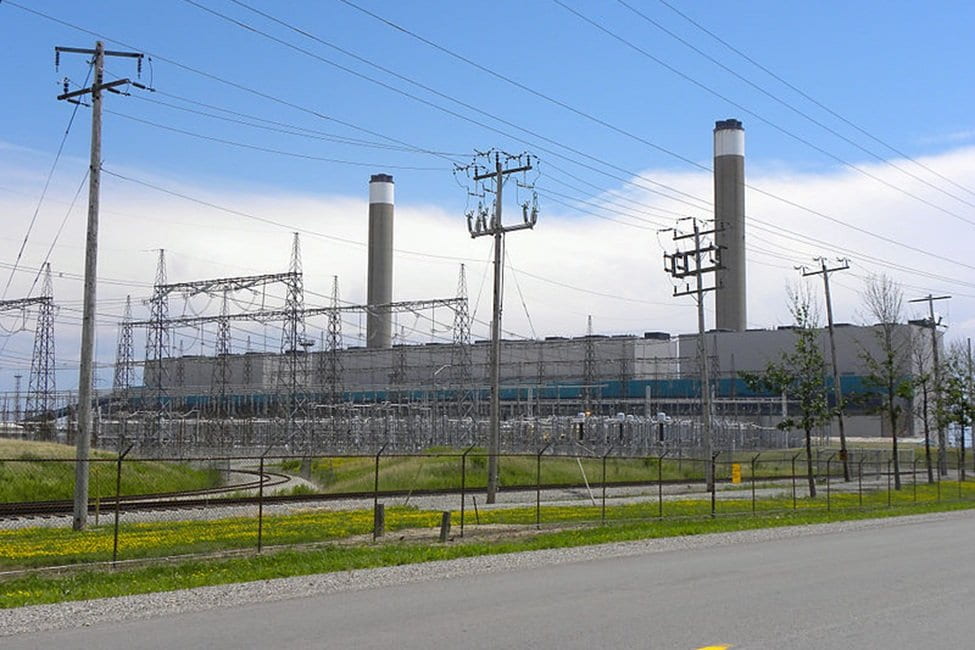by Narayan Gopinathan
In order to stabilize the global climate, it is necessary for the global economy to reach net zero emissions. We must phase out polluting technologies, which emit carbon dioxide. These include coal power plants, gasoline cars, and diesel trucks. Due to the global nature of the problem, it is necessary to phase out these technologies everywhere. For that reason, there are several international agreements and coalitions which aim to accelerate the phaseout of these technologies.
One such agreement is the Powering Past Coal Alliance (PPCA), which has been described as a “non-proliferation treaty for fossil fuel” [1]. This is a narrowly crafted coalition started by Canada and the United Kingdom. It aims to ensure the phaseout of the use of unabated coal for electricity by 2030 in developed countries and by no later than 2050 in the entire world [2]. It focuses on the specific use case of coal for electricity because its emissions per unit energy are much worse than anything else, and alternatives are readily available. However, this narrow crafting opens up loopholes. For example, despite founding the PPCA, Canada allows the mining and export of metallurgical coal, which is used for steelmaking, and it also allows the export of thermal coal from the United States through Canadian ports to be burned for electricity in Asia [3].

Figure 1: Nanticoke Generating Station, the largest coal power plant that was shut in 2013 as part of Ontario’s coal phaseout. Photo credit: Wikimedia Commons.
For this reason, environmental activists have endorsed a broader fossil fuel non-proliferation treaty, which would phase out all fossil fuels [4]. This would be modeled after the Nuclear Nonproliferation Treaty (NPT), which had a three-pillar structure: non-proliferation, disarmament, and peaceful use. For nuclear weapons, non-proliferation meant that countries without such weapons agreed not to seek or build them, and those with, agreed not to sell them. For fossil fuels, the analogous step would be a mechanism for coordinating and verifying obligations for a phaseout. The second pillar of the NPT was disarmament, meaning each country would stop building nuclear weapons. For fossil fuels, countries would drastically reduce demand for fossil fuels through investments in electric vehicles, renewable energy, public transit, and the like. The last pillar of the NPT was peaceful use – meant countries without nuclear weapons could receive technical assistance in the development of nuclear power for peaceful use. In the case of a fossil fuel treaty, wealthy countries would fund and transfer clean technology from rich countries to poor countries.
Thus far the PPCA has 96 national and subnational government endorsers [5]. On the other hand, no government has yet endorsed a fossil fuel non-proliferation treaty, which remains in the realm of academia and NGOs, despite support from prominent activists. However, by putting forward this idea, the concept of a fossil fuel NPT does promote the phaseout of specific fuels as a part of a broader focus on eliminating carbon emissions. At the COP26 conference in Glasgow in November 2021, there was an international agreement to “phase down” the use of coal, which is the first time that any reference to any specific fuel had been in an international agreement. Though they were not able to secure the necessary support for an agreement to “phase out” the use of coal, this still marks a significant watershed in the history of fossil fuels [6]. Furthermore, at the same conference, the new Beyond Oil and Gas Alliance (BOGA) was also founded, to facilitate the managed phase-out of oil and gas production. This is another watershed in the history of fossil fuels, redefining what climate leadership looks like [7]. Until this point, almost every country has viewed fossil fuel reserves as profit, exemplified by Justin Trudeau’s 2017 remark that “no country would find 173 billion barrels of oil in the ground and just leave them there” [8]. As such, the existence of the BOGA changes the conversation around the future of fossil fuels.
The future of coalitions to phase out fossil fuels remains to be written. In order to stabilize the climate, we need to phase out the combustion of all fossil fuels unless we can prevent the CO2 from being released into the atmosphere, and this must happen in every country. For that reason, it is clear that the global alliances to accelerate the phaseout of fossil fuels will be key to solving climate change.
References:
- Matthieu Blondeel and Thijs Van de Graaf. Growing anti-coal alliance could become non-proliferation treaty for fossil fuel. Climate Home News. 2/10/2019 https://www.climatechangenews.com/2019/10/02/growing-anti-coal-alliance-become-non-proliferation-treaty-fossil-fuel/
- Who we are. Powering Past Coal Alliance. https://www.poweringpastcoal.org/about/who-we-are
- Tristin Hopper. Anti-pipeline Vancouver is really North America’s largest exporter of coal. National Post. https://nationalpost.com/news/politics/yes-anti-pipeline-vancouver-really-is-north-americas-largest-exporter-of-coal
- The Fossil Fuel Nonproliferation Treaty. https://fossilfueltreaty.org/
- PPCA Members. https://www.poweringpastcoal.org/members
- Talha Khan Burkhi. “Phasedown” of coal use after COP26 negotiations. The Lancet. January 1, 2022. https://doi.org/10.1016/S2213-2600(21)00544-0
- Beyond oil and gas alliance. https://beyondoilandgasalliance.com/
- Jeremy Burke. Justin Trudeau gets standing ovation at energy conference in Texas. Mar 11, 2017.
Narayan is part of the 2020-2021 INFEWS program cohort and a PhD student in the Institute of the Environment and Sustainability at UCLA. His research focuses on electrification of transportation and other end uses of energy.
The blog is part of the INFEWS Social Media Series.
